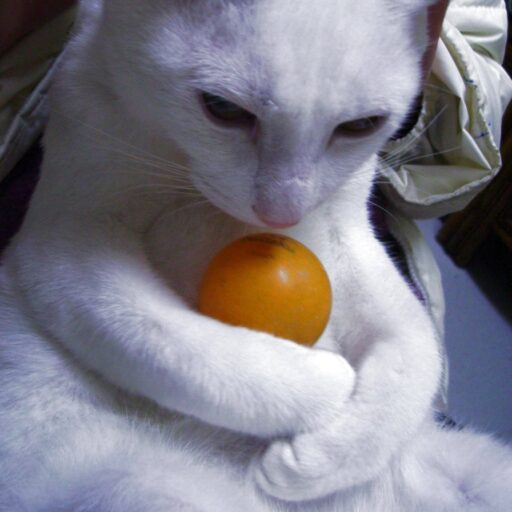附和句是用來表示說話者自己和對方的意見或是情況相同的句型,因此前面的句子若是肯定,則附和句也是肯定句型。若是前面的句子是否定句,則後面的附和句也是否定句型,否則就是唱反調,而不是附和對方。
附和句口訣前肯定→後肯定; 前否定→後否定 (與附加問句不同)請參考附加問句文法
依照前句得時態做選擇(前後時態一致) 並依照後面的主詞做變化
附和句肯定使用 So(也);否定使用Neither(也不) 本身為否定意思不與not一起使用
句有否定意思得字:never seldom hardly little less few fewer not no
附和句文法肯定句型 too so
肯定時用的「也」表示方法有too 及so,但兩者句子的寫法不同。
| Too的位置:放在句尾 Too的句子:不用倒裝 (S+V) | So 的位置:放在be / 助動詞之前 So 的句子:則要倒裝 (V+S) |
| He is a doctor, and I am, too. | He is a doctor, and so am I. |
| I like playing basketball, and he does, too. | I like playing basketball, and so does he. |
附和句文法否定句型 either neither
否定時用的「也」表示方法有not…either 及neither,但兩者句子寫法不同
| not…either的位置:放在句尾not…either的句子:不用倒裝 | neither的位置:放在be/助動詞之前neither的句子:則要倒裝 |
| He isn’t a student, and I am not, either. | He isn’t a student, and neither am I. |
| I don’t like cats, and he doesn’t, either. | I don’t like cats, and neither does he. |
BeV→BeV (前面BeV附和句也使用BeV)
I am a teacher, and so is Mary. 我是一名老師,瑪莉也是。
Cindy isn’t a doctor. Neither am I. 辛地不是一名醫生,我也不是。
You are tall. / I am tall.→You are tall, and I am, too. →You are tall, and so am I.
You are not short. / I am not short.
→You are not short, and I am not, either.
→ You are not short, and neither am I.
有意義之助動詞(will can have/has/had+p.p. may would could )
→同一個有意義之助動詞
Jack can play basketball. So can his brother.傑克會打籃球,他哥哥也會。
Mary won’t go to the party, Neither will Cody. 瑪莉將不會去派對,Cody也將不會去。
Cathy has not finished her homework. Neither have I. 凱西還沒完成作業,我也還沒。
He plays tennis. / Hank plays tennis.
→ He plays tennis, and Hank does, too. →He plays tennis, and so does Hank.
Mary can play the piano. / Bill can play the piano.
→Mary can play the piano, and Bill can, too .
→ Mary can play the piano, and so can Bill.
You have studied math for an hour. / He has studied math for an hour.
→ You have studied math for an hour, and he has , too .
→You have studied math for an hour, and so has he.
一般動詞→助動詞(do/does/did)
My mother cooks well, so do I. 我媽媽很會煮飯,我也是。
I play the piano well, and so does my mother. 我鋼琴彈得很好,我媽媽也是。
Kate gave the boy a toy, So did Peggy. Kate 給那個男孩一個玩具,Peggy也是。
Ella doesn’t sing the song well, and neither does Selina. Ella唱得不好,Selina也唱得不好。
He doesn’t play baseball. / Polly doesn’t play baseball.
→ He doesn’t play baseball, and Polly doesn’t ,either .
→ He doesn’t play baseball, and neither does Polly.
附和句文法選擇題
( D ) 1. A: You are going to school on foot. B:___________
(A) I am, so. (B) So I do. (C) Me, either. (D) So am I.
( D ) 2. Mark has never been to America, and ____________.
(A) I have, too (B) I have, either(C) I haven’t, too (D) I haven’t, either
( B ) 3. A: Sally just bought a piece of fried chicken. B: I did, _________.
(A) so (B) too (C) either (D) Neither
( C ) 4. They can play Frisbee very well. You can play it very well.
(A) They can play Frisbee very well, and you can.
(B) They can play Frisbee very well, and so you can.
(C) They can play Frisbee very well, and so can you.
(D) They can play Frisbee very well, and so do you.
( C ) 5. Mr. Wang: Tom didn’t go to the party. Mary: Neither did I.
(A) Mr. Wang didn’t go to the party.
(B) Mary didn’t go to the party.
(C) Mr. Wang and Mary didn’t go to the party.
(D) Tom went to the party.
( A ) 6. Neil can’t go swimming this afternoon, and ______ _____ Emma.
(A) neither can (B) neither can’t
(C) either can’t (D) either can
( C ) 7. Helen was singing then, and _____ ______ I.(A) so am (B) so did (C) so was (D) neither was
1. We like playing chess, and they do, too.
2. Jack can ride a horse, and so can Jenny.
4. Billy is not going to the library, and Bob isn’t, either.
5. Vivian used her time well, and so did Lily.
6. You never go skiing, and neither do I.
7. Mike has joined the school basketball team for 2 years, and Frank has, too.
- 英文字母大寫規則 Capitalization
- 英文人稱代名詞、名詞單複數
- am is are was were 與do does did done
- 主詞 所有格 受格 所有格代名詞 反身代名詞表
- N of N所有格 非生命所有格
- 指示代名詞this that these those 文法
- 時間介係詞 on in at
- 時間介係詞 in at on 介係詞總整理
- talk speak say tell 都是說差別在哪裡?
- 附加問句文法
- 附和句文法
- 交通工具搭乘文法
- Here倒裝句文法
- Have 用法總整理1
- Have 用法總整理2
- take用法總整理
- 英文被動語態文法
- 沒有被動語態的動詞
- 被動語態(感官&使役&授與動詞)
- 後位修飾法 形容詞片語修飾名詞
- 情緒形容詞(過去分詞)文法
- too…to/enough to/So … that…/such that 文法
- Yes or No 疑問句改間接問句
- 間接問句文法講義 練習題
- As long as /as soon as 文法
- 雙字片語可分式片語與不可分式片語總整理
- 英文字尾er or ist 職業英文單字
- late latter later latest last 文法
- die death dead 用法與片語
- someday/one day /the order day/some other day 用法
- Thank 人 for 事為某事感謝某人 感嘆句文法
- A marry B A和B結婚英文怎麼說
- 英文時間地點哪個先寫
- have a big sale/on sale/for sale 意思
- on time/in time/at the end of/in the end差異
- fill與stuff 使用差異
- 幾分之幾英文怎麼說
- Help文法句型 幫助某人片語
